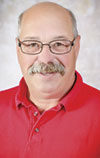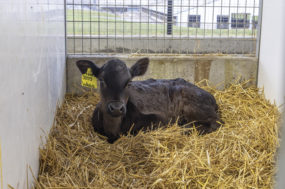Pest control comes in many forms. Although fly season is over, birds, rats and mice can be just as costly to dairy farmers.
Disease transmission related to birds and rodents can lead to a reduction in milk production and decreased weight gains. Typically, these pests become an issue in colder weather as they try to escape to warm barns and find a food supply. ![]()
Recognize if you have a bird or rodent problem. Be aware of your surroundings. You might not see the pests because they come out at night. Look for gnawing marks and damage in and around feed storage areas, droppings, feathers and footprints.
Get existing pest problems under control. Use a combination of sanitation, structural updates and baits or traps to eliminate pests. Simply using baits won’t get rid of the issue.
Prevent birds from congregating in freestalls, calf barns and bunkers. They’re flying sources of bacteria and parasites. Bird control methods range from simple solutions such as visual scares (lifelike owls or reflective objects that blow in the wind) to high-tech laser and electronic products.
Be on the lookout for problem areas. This includes bird or rodent nests, clutter and damaged feed bags. Address these areas quickly rather than waiting for the problem to increase.
Reduce the number of potential nesting areas. Rodent and bird nesting areas will be inside sheltered areas. Work to eliminate open areas, especially in and around feed storage areas.
Keep doors and windows closed. The best way to keep birds and rodents out is to limit their ability to get in. In addition to keeping doors and windows closed, plug holes in walls and ceilings.
Continue a regular program. It’s important to continue to use baits and traps as preventative measures even after you believe the problem has been resolved.
Use rodenticides to prevent rat and mice populations from contaminating feed sources. Rotate between active ingredients to keep rodents from building up a resistance. Also keep in mind that while dogs and cats are a welcome addition on many farms, they should be discouraged from entering feed storage areas.

-
Armon Hetzel
- Professional Services Veterinarian
- Animart
- Email Armon Hetzel






